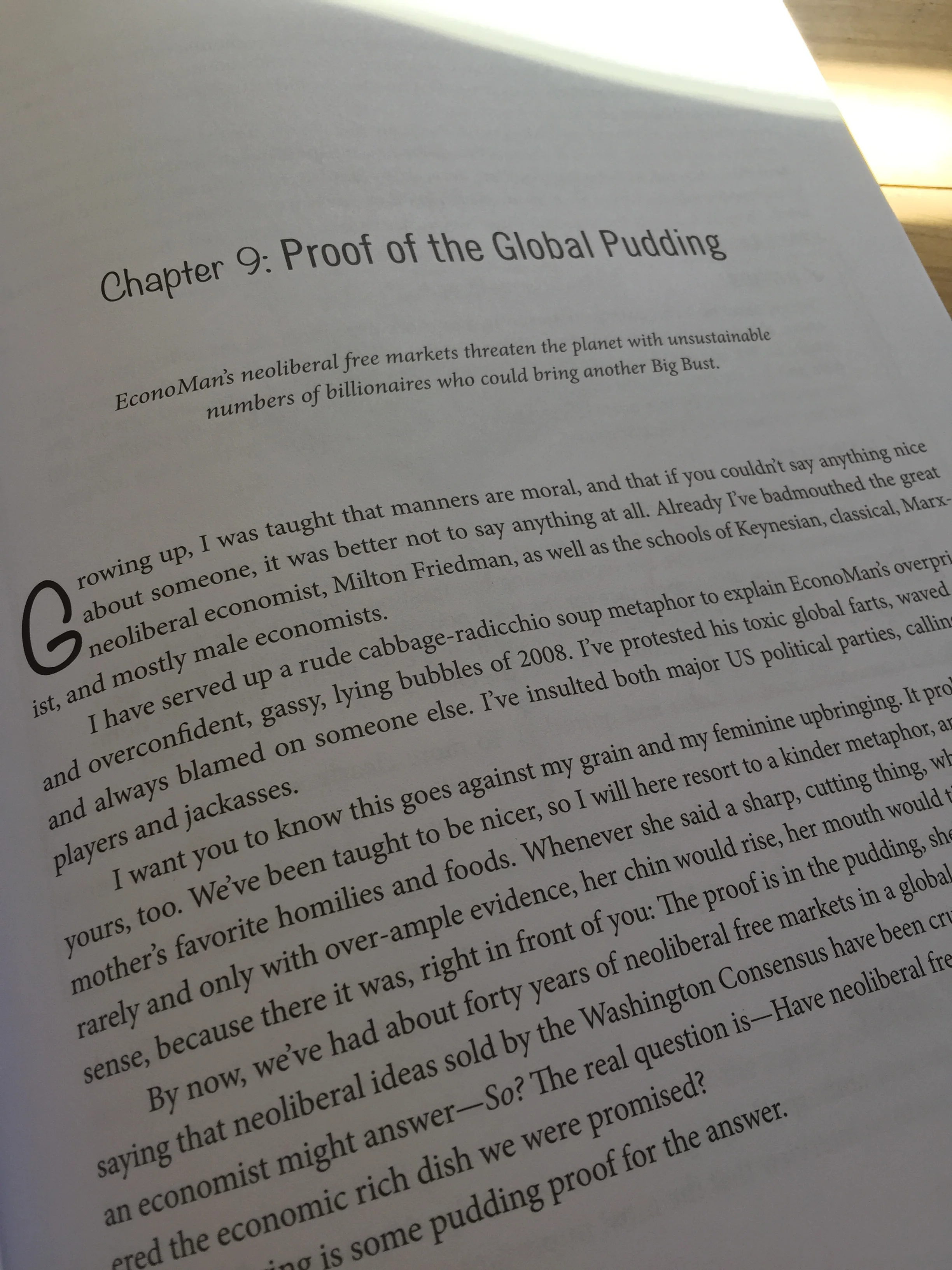I just had a great conversation with Wade Rathke at WABF in New Orleans, who asked me about the “cupcake” economy I talk about in Screwnomics, and ways to make lasting change. Everyone should get some frosting, borne up by a cake mix of commerce, home, and community—not separate layers, but working together.
Drawing on Hazel Henderson, Ellen Brown, and Gwendolyn Hallsmith, I talked about ethical investing, local investing and the local economy, including local currencies—and also about public banking. Right away Wade knew the history of North Dakota and its Nonpartisan League, which worked to promote women’s right to vote, and against east coast bank and corporate exploitation. http://history.nd.gov/ndhistory/npl.html
Wade has long been a champion of us people who get the short end of the stick in this economy. But why does disempowering women and screwing the majority so often go hand in hand? That’s what Screwnomics decodes and makes clear. Wade and I agreed that we need an Economic #MeToo movement!
The amazing thing for me is that many of the ND state leaders who brought about progressive change in the early 1900s were Republicans, who in those days, I’ll remind you, were also pro-birth control and helped fund Planned Parenthood. Things have changed, except for this: the impetus to disempower women goes hand-in-hand with screwing the majority.
One of the longest-lasting measures of the Nonpartisan League was establishment of the Bank of North Dakota, capitalized by state revenue, its tax money—with a mission to promote the state’s economy, instead of the richest stockholders of the biggest eastern banks. They didn’t send all their revenue to Wall Street to be gambled. BND even did well in 2008 when big private banks had to be bailed out at taxpayer cost.
Now there’s a movement to replicate BND’s fiscal success for the people (low, low student loan rates, more readily available loans for small business and farmers) in other states. Even cities want to bank in the local public interest. Why put all our eggs in one Wall Street basket?? Isn’t it wiser to diversify? http://www.insidesources.com/is-the-bank-of-north-dakota-a-solution-to-municipal-financing-after-divestment/
Curious? You can find Ellen Brown’s interview with me on Public Banking Institute’s “It’s Our Money” here: http://itsourmoney.podbean.com/. Wade’s World on WBKF can be found on the link below, and my interview will be posted there in the company of so many remarkable women and men, who know we need change: http://www.kabf.org/wp-content/uploads/2018/05/Wades%20World%20%20050418.









